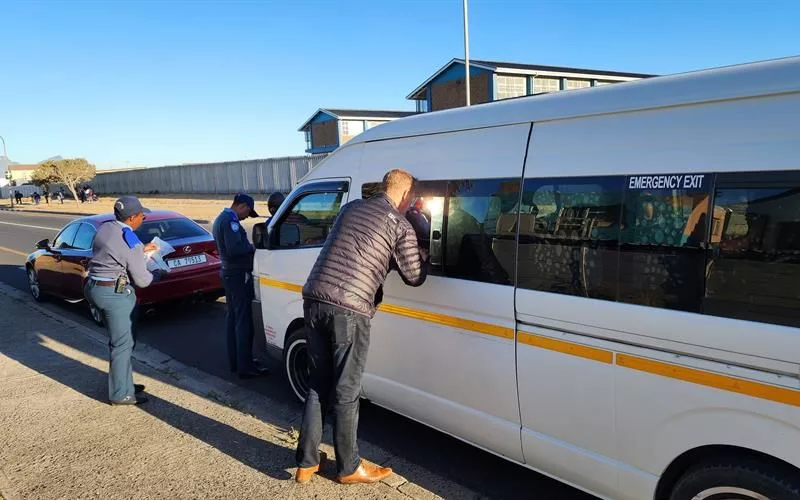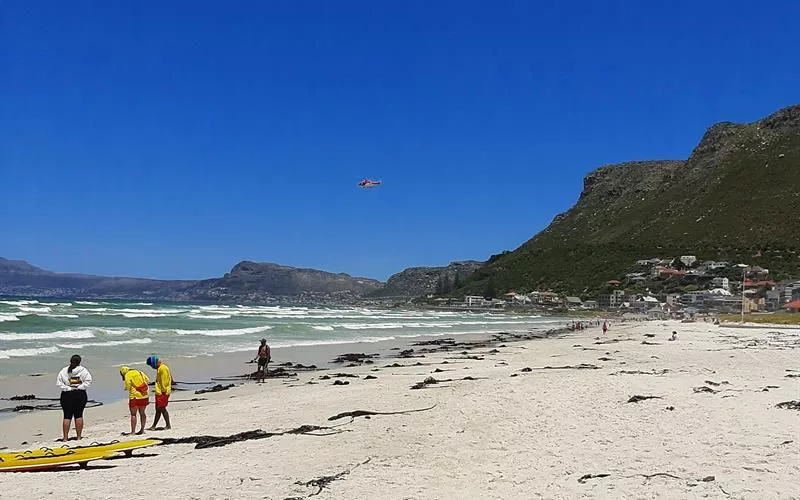In Mitchells Plain, there is a growing concern for the safety of students during transportation to school. Traffic Services have conducted operations that revealed many drivers are operating without the necessary qualifications and using unfit vehicles. Alderman JP Smith is calling for greater awareness of the law’s requirements and for parents and caregivers to verify their service provider’s credentials. It is a call for all to work together to ensure a culture of safety and respect for life on the roads.
What are the primary requirements for student transport operators?
Drivers should have a valid operating license, driving license, and professional driving permit (PrDP). Vehicles must be registered and licensed in the Western Cape, should not be older than 12 years, have a specific ‘vehicle fitness’ certificate, pass roadworthy testing every six months, be fitted with a seatbelt for each passenger, and a car seat for each child under three years of age. Parents and caregivers should check their service provider’s credentials and report any violations.
In the vibrant suburb of Mitchells Plain, with the advent of the new academic year, there is a resounding demand for amplified road safety. The municipal Traffic Services, supported by Alderman JP Smith and the Provincial Transport MEC, have galvanized the community towards the crucial mission of securing safe student transportation.
The Concerning Findings from Traffic Services Operations
The dawn of the day saw the commencement of an operation which echoed the preceding year’s theme — emphasizing the significance of compliance with the law while managing student transportation. In the year 2023, the Traffic Services conducted as many as 61 operations throughout the metropolis with a specific focus on school transportation. The outcome of these operations was as enlightening as it was intimidating — as many as 238 vehicles were seized and a whopping 5,407 fines were issued for a variety of legal violations.
The vicinity of two educational institutions in Mitchells Plain saw as many as 19 vehicles impounded in just one morning. The offenses were diverse, ranging from the lack of necessary permits and qualifications to operate, to overloading and using vehicles that were not roadworthy. A driver was even detained at Mitchells Plain SAPS for transporting 23 students aged between 10 and 15 years.
The Underlying Issue and the Call for Action
These incidents highlight a more significant, ingrained problem. A worrying number of individuals are endangering the lives of young students by driving without the necessary qualifications or using vehicles that are not fit for transportation.
Alderman JP Smith, the member of the Mayoral Committee responsible for Safety and Security, voiced his deep concern about this alarming situation. He termed it as “mind-boggling” and a “disregard for the young lives in their care.” His statement recognizes the potential catastrophe waiting to happen in the form of overloaded and unroadworthy vehicles.
The already complicated situation is further complicated by the high demand for student transportation and a general lack of knowledge of the law. These factors have created favorable circumstances for fraudulent operators to slip under the radar, often only getting caught when involved in an accident or apprehended by traffic officers. Alderman Smith’s public appeal made in 2024 encourages a comprehensive understanding of the requirements for student transport operators and urges the public to report any illegal operations.
The law mandates two primary requirements for student transport operators — the driver’s fitness and the vehicle’s fitness. Drivers should have a valid operating license, driving license, and professional driving permit (PrDP). Conversely, vehicles must meet several criteria – they should not be older than 12 years, should be registered and licensed in the Western Cape, should have a specific ‘vehicle fitness’ certificate, should be able to pass roadworthy testing every six months, should be fitted with a seatbelt for each passenger, and a car seat for each child under three years of age.
The Role of Parents and Caregivers
Parents and caregivers hold the right and the obligation to check the credentials of their service providers. They should verify whether the vehicle complies with the specifications set out, and should report any violations to either the Provincial Regulatory Entity or the City’s Public Emergency Communication Centre.
The campaign for safer student transportation, as demonstrated through the operations in Mitchells Plain, is a timely wake-up call about our shared duty to protect our children. It is a call to action that demands not only law compliance but also the fostering of a safety culture and respect for life on our roads. As the academic year progresses, Mitchells Plain sets an example, guiding the way for other regions to follow in the pursuit of safer student transportation.
What were the outcomes of the Traffic Services operations in Mitchells Plain with regards to student transportation safety?
The Traffic Services conducted 61 operations in Mitchells Plain, revealing that many drivers are operating without the necessary qualifications and using unfit vehicles. As a result, 238 vehicles were seized, and 5,407 fines were issued for a variety of legal violations.
What are the primary requirements for student transport operators?
Drivers should have a valid operating license, driving license, and professional driving permit (PrDP). Vehicles must be registered and licensed in the Western Cape, should not be older than 12 years, have a specific ‘vehicle fitness’ certificate, pass roadworthy testing every six months, be fitted with a seatbelt for each passenger, and a car seat for each child under three years of age. Parents and caregivers should check their service provider’s credentials and report any violations.
What is Alderman JP Smith’s position on the issue of student transportation safety in Mitchells Plain?
Alderman JP Smith, the member of the Mayoral Committee responsible for Safety and Security, is deeply concerned about the alarming situation of illegal and unsafe student transportation in Mitchells Plain. He has termed it as “mind-boggling” and “a disregard for the young lives in their care.” He encourages a comprehensive understanding of the requirements for student transport operators and urges the public to report any illegal operations.
What is the underlying issue with student transportation safety in Mitchells Plain?
A worrying number of individuals are endangering the lives of young students by driving without the necessary qualifications or using vehicles that are not fit for transportation. The high demand for student transportation and a general lack of knowledge of the law have created favorable circumstances for fraudulent operators to slip under the radar, often only getting caught when involved in an accident or apprehended by traffic officers.
What is the role of parents and caregivers in ensuring student transportation safety?
Parents and caregivers hold the right and obligation to check the credentials of their service providers. They should verify whether the vehicle complies with the specifications set out and report any violations to either the Provincial Regulatory Entity or the City’s Public Emergency Communication Centre.
How can the community work together to ensure safer student transportation in Mitchells Plain?
The campaign for safer student transportation is a timely wake-up call about our shared duty to protect our children. It demands not only law compliance but also the fostering of a safety culture and respect for life on our roads. The community can work together by ensuring that drivers and vehicles comply with the necessary requirements, reporting any violations, and promoting a culture of safety and respect on our roads.












